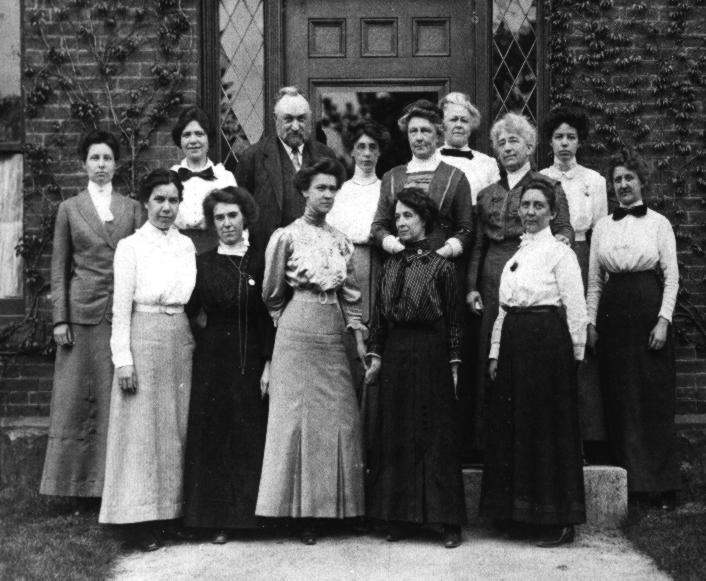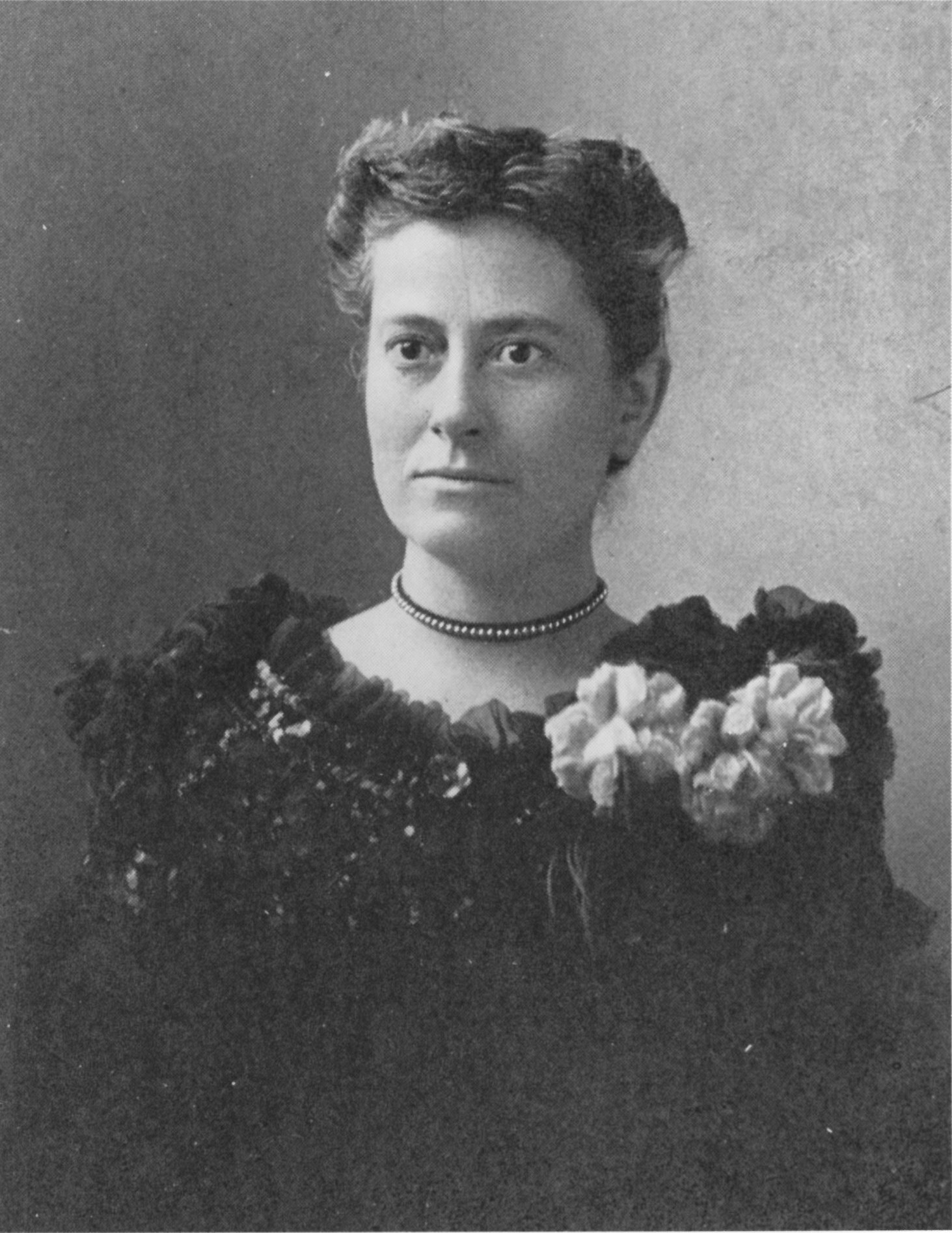
Image via Wikimedia Commons
As team names go, the Harvard Computers has kind of an oddball ring to it, but it’s far preferable to Pickering’s Harem, as the female scientists brought in under the Harvard Observatory’s male director were collectively referred to early on in their 40-some years of service to the institution.
A possibly apocryphal story has it that Director Edward Pickering was so frustrated by his male assistants’ pokey pace in examining 1000s of photographic plates bearing images of stars spotted by telescopes in Harvard and the southern hemisphere, he declared his maid could do a better job.
If true, it was no idle threat.
In 1881, Pickering did indeed hire his maid, Williamina Fleming, to review the plates with a magnifying glass, cataloguing the brightness of stars that showed up as smudges or grey or black spots. She also calculated—aka computed—their positions, and, when possible, chemical composition, color, and temperature.
The newly single 23-year-old mother was not uneducated. She had served as a teacher for years prior to emigrating from Scotland, but when her husband abandoned her in Boston, she couldn’t afford to be fussy about the kind of employment she sought. Working at the Pickerings meant secure lodging and a small income.
Not that the promotion represented a financial windfall for Fleming and the more than 80 female computers who joined her over the next four decades. They earned between 25 to 50 cents an hour, half of what a man in the same position would have been paid.

Image via Wikimedia Commons
At one point Fleming, who as a single mother was quite aware that she was burdened with “all housekeeping cares …in addition to those of providing the means to meet their expenses,” addressed the matter of her low wages with Pickering, leaving her to vent in her diary:
I am immediately told that I receive an excellent salary as women’s salaries stand.… Does he ever think that I have a home to keep and a family to take care of as well as the men?… And this is considered an enlightened age!
Harvard certainly got its money’s worth from its female workforce when you consider that the classification systems they developed led to identification of nearly 400,000 stars.
Fleming, who became responsible for hiring her coworkers, was the first to discover white dwarfs and the Horsehead Nebula in Orion, in addition to 51 other nebulae, 10 novae, and 310 variable stars.
An impressive achievement, but another diary entry belies any glamour we might be tempted to assign:
From day to day my duties at the Observatory are so nearly alike that there will be little to describe outside ordinary routine work of measurement, examination of photographs, and of work involved in the reduction of these observations.
Pickering believed that the female computers should attend conferences and present papers, but for the most part, they were kept so busy analyzing photographic plates, they had little time left over to explore their own areas of interest, something that might have afforded them work of a more theoretical nature.
Another diary entry finds Fleming yearning to get out from under a mountain of busy work:
Looking after the numerous pieces of routine work which have to be kept progressing, searching for confirmation of objects discovered elsewhere, attending to scientific correspondence, getting material in form for publication, etc, has consumed so much of my time during the past four years that little is left for the particular investigations in which I am especially interested.
And yet the work of Fleming and other notable computers such as Henrietta Swan Leavitt and Annie Jump Cannon is still helping scientists make sense of the heavens, so much so that Harvard is seeking volunteers for Project PHaEDRA, to help transcribe their logbooks and notebooks to make them full-text searchable on the NASA Astrophysics Data System. Learn how you can get involved here.
Related Content:
Women Scientists Launch a Database Featuring the Work of 9,000 Women Working in the Sciences
Real Women Talk About Their Careers in Science
Ayun Halliday is an author, illustrator, theater maker and Chief Primatologist of the East Village Inky zine. Follow her @AyunHalliday.


This story is nicely recorded in M. W. Rossiter Women Scientist in America. Before Affirmative Action 1940–1952 John Hopkins UP 1995, pp. 53–4. There are more stories about Fleming and the other women working with her. I am puzzled by the lack of reference to Rossiter’s work.